Check out our lectures from the previous edition:




In an ever-changing world, it is important to keep up with the latest innovations. In the never-ending search for what’s new, what better way to learn about it than to hear from the innovators themselves
CHAIRMAN
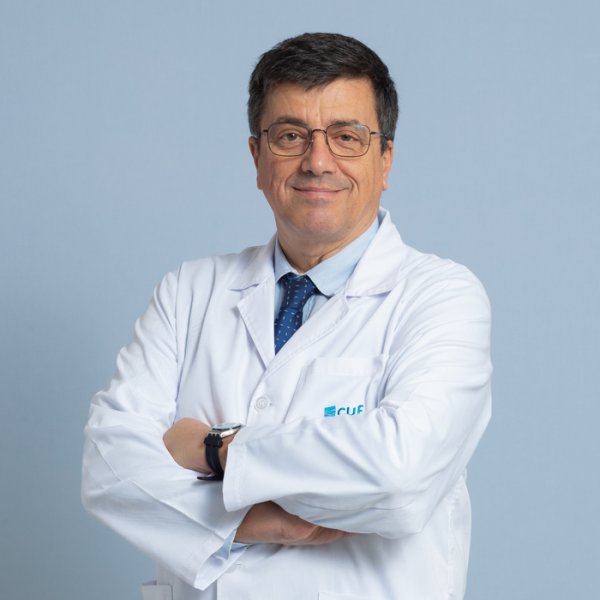
Nuno Clode
Nuno Clode
Nuno Clode is a Gynecology and Obstetrics doctor and the current President of the Portuguese Society of Obstetrics and Maternal-Fetal Medicine. Throughout his career, he has focused on areas such as Maternal-Fetal Medicine, Prenatal Diagnosis or General Gynecology and Obstetrics. He currently practices at Hospital de Santa Maria and at CUF Mafra and Torres Vedras and is an assistant in Gynecology and Obstetrics at FML.
SPEAKERS
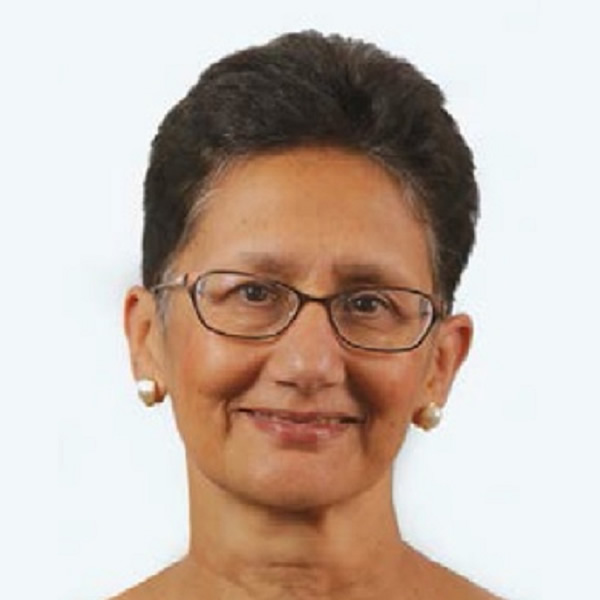
Neena Modi
Neena Modi
Neena Modi is Professor of Neonatal Medicine and Vice-Dean (International Affairs), Faculty of Medicine, Imperial College London, a fellow and council member of the UK Academy of Medical Sciences, and president-elect of the European Association of Perinatal Medicine. Neena is a past-president of the British Medical Association, Medical Women’s Federation, and UK Royal College of Paediatrics and Child Health. She has also headed the research organisations, The Neonatal Society and Academic Paediatrics Association of Great Britain and Ireland.
Neena leads a multidisciplinary neonatal research group at Imperial, tackling the immediate care of the sick and preterm newborn infant with the aim of improving life-long health. She also leads the UK National Neonatal Research Database and eNewborn, an International Neonatal Research Database. She is an international advocate for child health and wellbeing.
Neena’s work on the use of real-world health data for patient benefit has been widely acclaimed. She received the Royal College of Physicians of London, Excellence in Patient Care Award for Innovation 2018 (the National Neonatal Research Database: A road-map for NHS “big-data” to improve care, services and patient outcomes) and in 2022 the US FDA funded Critical-Path Institute, International Neonatal Consortium, Data Pioneer Award for contributions to health data research.
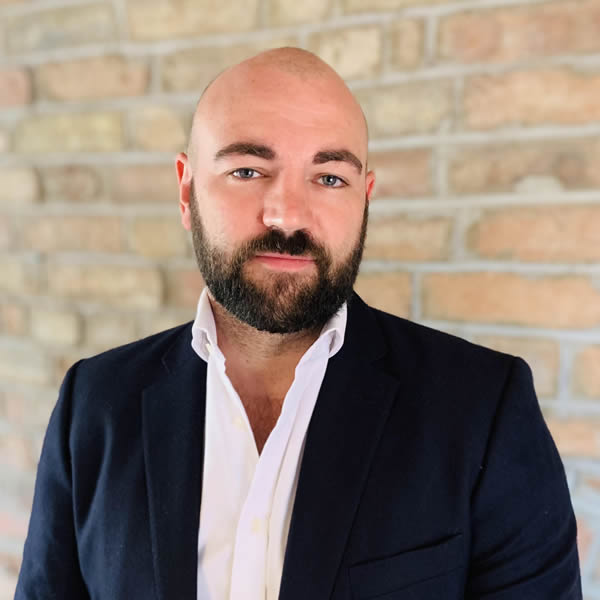
Sam Mathewlynn
Sam Mathewlynn
Sam Mathewlynn is a consultant obstetrician at John Radcliffe Hospital in Oxford. He completed his undergraduate training at the University of Bristol and received clinical training in obstetrics and gynaecology in the Thames Valley region. With a strong interest in digital health, Sam focuses on developing innovative digital tools for risk stratification during the antenatal and postnatal period.
A Topol Fellow in digital health, Sam collaborates with the National Centre for Maternity Improvement as a Fellow for Future Development. He actively contributes to expanding the ‘Tommy’s App,’ a digital tool that supports maternal health. Sam’s expertise has been acknowledged through peer review, and he is a member of the Faculty of Clinical Informatics.
Sam is currently pursuing a DPhil project that explores the use of 3D ultrasound and machine learning techniques (AI) to assess placental volume and vascularity in the first trimester. His research aims to enhance the prediction of adverse pregnancy outcomes, such as pre-eclampsia and fetal growth restriction.
Through his clinical experience and dedication to digital health, Sam Mathewlynn strives to improve maternal and fetal healthcare outcomes.
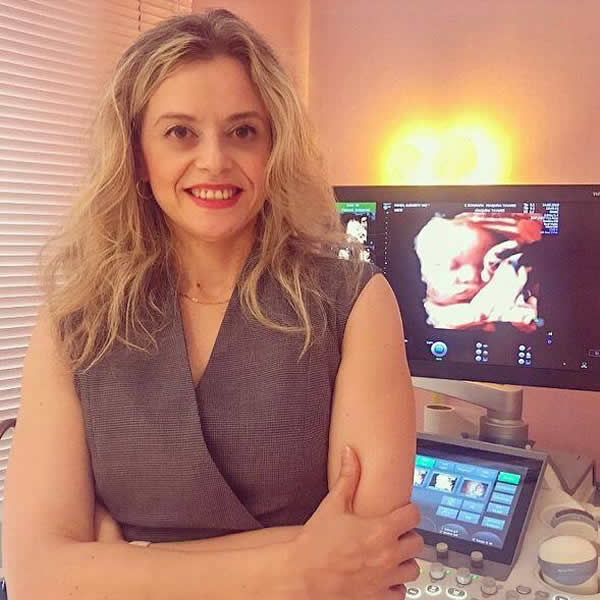
Teresa Loureiro
Teresa Loureiro
Teresa Loureiro is a highly qualified and accomplished medical professional specializing in Gynecology and Obstetrics. She holds a Medical Degree from the University of Coimbra and completed her Doctorate in Medicine at the University of Porto, on the ‘Description of the Anatomy of the Normal and Abnormal Fetal Brain by Three-Dimensional Ultrasound in the First Trimester of Pregnancy’.
Teresa’s career has been marked by a strong commitment to her field. She specialized in Gynecology and Obstetrics at Hospital S. João, Porto, and has since been recognized as an Assistant Doctor in the same discipline. Her current position as a Specialist Doctor in Gynecology and Obstetrics at Centro Hospitalar Universitário Lisboa Norte, EPE, Portugal, allows her to contribute significantly to prenatal care, particularly in the area of diagnostic imaging and invasive procedures. She serves as a Guest Assistant Professor at the Faculty of Medicine, University of Lisbon, imparting her knowledge in Gynecology and Obstetrics.
With her vast experience and commitment to excellence, Teresa Loureiro continues to make significant contributions to the field of Gynecology and Obstetrics, enhancing prenatal care and ensuring the well-being of expectant mothers and their babies.
CHAIRMAN
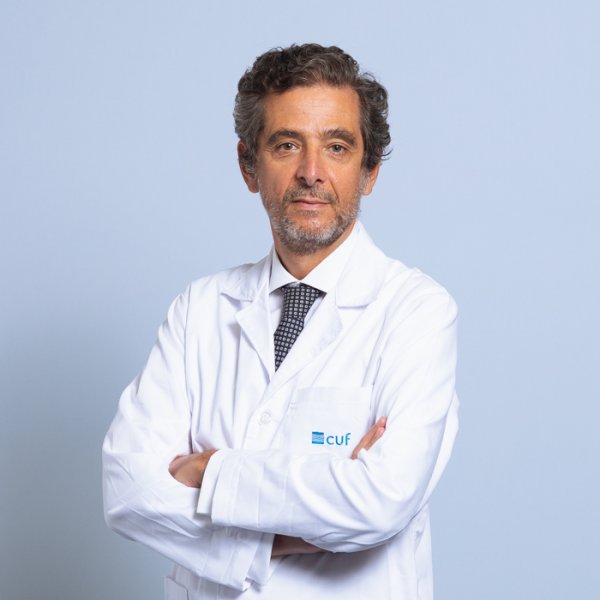
Miguel Viana Batista
Miguel Viana Batista
Miguel Viana Baptista nasceu em Lisboa em 1965. É diretor do Serviço de Neurologia do Hospital Egas Moniz e professor de Neurologia na Faculdade de Ciências Médicas da Universidade Nova de Lisboa. Divide a sua vida entre a medicina e os livros, tendo publicado até agora um romance em nome próprio e um conto sob pseudónimo.
SPEAKERS
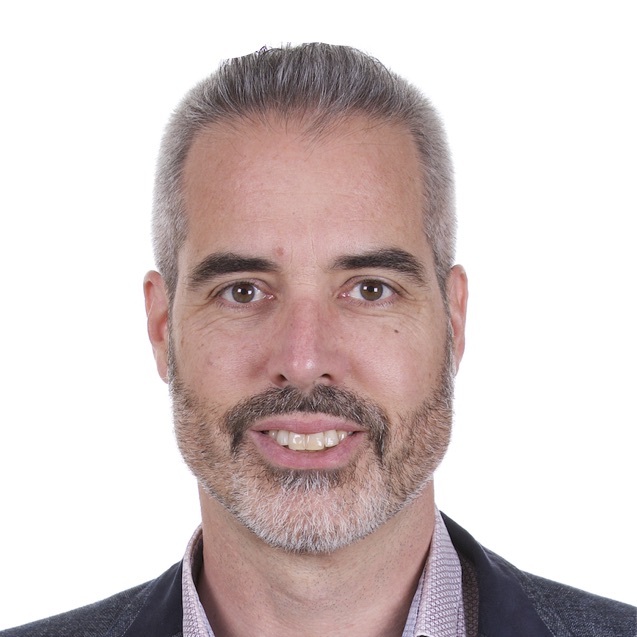
Kevin Mitchell
Kevin Mitchell
Kevin Mitchell is an associate Professor of Genetics and Neuroscience at Trinity College Dublin. He studies the genetics of brain wiring and its relevance to variation in human faculties, psychiatric disease and perceptual conditions like synaesthesia. His current research focuses on the biology of agency and the nature of genetic and neural information. He is the author of “INNATE – How the Wiring of Our Brains Shapes Who We Are” and “FREE AGENTS – How Evolution Gave us Free Will”.
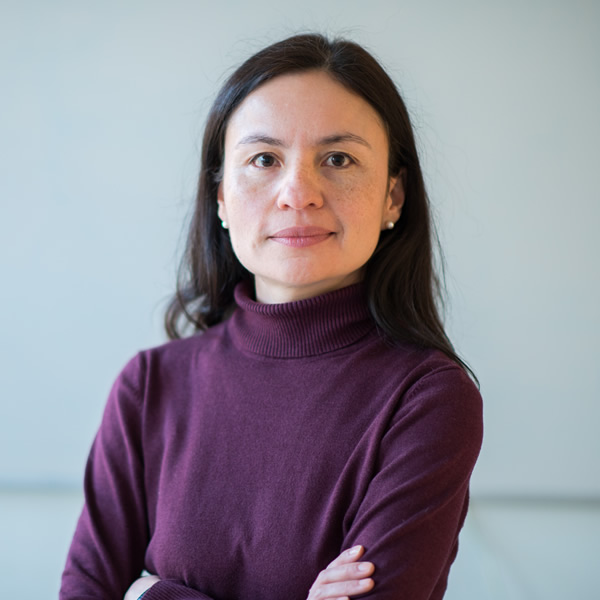
Lucía Chávez-Gutiérrez
Lucía Chávez-Gutiérrez
Lucía Chávez-Gutiérrez (LCG) holds a PhD in Sciences with a major in Biochemistry from the National University of Mexico.
Trained as biochemist with a strong background in enzymology and protein structure, LCG studies proteolytic mechanisms and their (dys)regulation on the premise that developing a solid mechanistic understanding will offer critical insights into how these molecular switches control fundamental cellular processes in physiology and disease.
Her fascination for proteases and the connection with brain function and disease motivated her postdoctoral studies in the laboratory of Prof. Bart De Strooper, where she investigated the γ-secretase intramembrane proteases and their pathogenic involvement in Alzheimer‘s disease.
Early-onset familial Alzheimer’s disease (FAD) is caused by mutations in Presenilin (PSEN, catalytic subunit of the γ-secretase proteases) and the Amyloid Precursor protein (APP). The studies of LCG settled down a long-standing “Loss-of-function vs. Gain-of-function” debate on the aetiology of FAD (Chávez-Gutiérrez et al, EMBO 2012; Szaruga et al, JEM 2015 and Veugelen et al, Neuron 2016) by demonstrating that pathogenic mutations in Presenilin variably affect the overall activity of γ-secretase -which controls key signalling cascades- but invariably increase the production of longer, aggregation-prone Aβ peptides.
Her mechanistic and genetically-led work has shown that the enhanced generation of longer Aβ species arises from the mutation-driven destabilizing effects on γ-secretase-APP interactions (Szaruga et al, Cell 2017). These mechanistic findings placed Aβ at the core of Alzheimer‘s pathogenicity and support the stabilization of γ-secretase-APP interactions (Petit et al EMBO J 2019) as a potential therapeutic strategy.
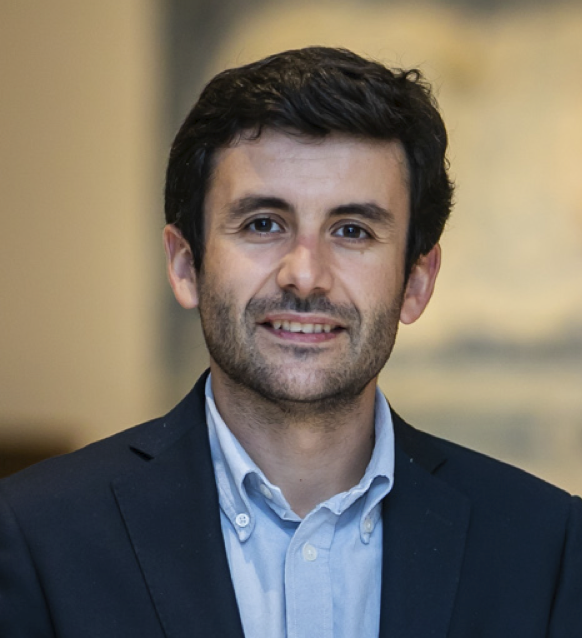
Pedro Nascimento Alves
Pedro Nascimento Alves
Professor Pedro Nascimento Alves is a neurologist, completing his Ph.D. in neurology on the theme “Delusions of space after stroke: clinical phenomenology and neural basis". He is currently practicing in the Neurology Department of Hospital de Santa Maria and is a member of the Language Studies Laboratory at the Faculty of Medicine of the University of Lisbon. In addition, he is a Guest Assistant Professor of Neurology in the Medicine course and a lecturer in the Masters and Ph.D. programs in Neurosciences at the Faculty of Medicine of the University of Lisbon. He is President of the Portuguese Section of Behavioral Neurology, part of the Portuguese Society of Neurology, and a member of several national and international scientific associations. As first author and co-researcher, he has published several indexed articles in his area of research. He has received numerous awards, such as the “Professor João Lobo Antunes 2018” Prize, the Pfizer Investigator-Initiated Research 2019 Grant, among others.
CHAIRMAN
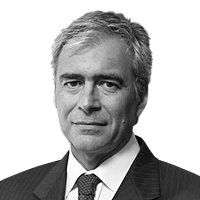
Francesco Della Corte
Francesco Della Corte
Currently full Professor in Anaesthesia, Critical Care, and Critical Emergency Medicine at the Università del Piemonte Orientale, Novara, Italy.
He served as Honorary Secretary to the European Society for Emergency Medicine from 1999 to 2006.
Founder of the European Master in Disaster Medicine (EMDM).
Founder and current Director of CRIMEDIM, as well as Founder and current Director of SIMNOVA, Centro Interdipartimentale di Didattica Innovativa e di Simulazione in Medicina e Professioni Sanitarie.
Director of the International Doctoral Program in Global Health, Humanitarian Aid and Disaster Medicine at Università del Piemonte Orientale.
Prof. Della Corte was involved in different projects funded by European Union. He authored more than 250 full papers published on peer-reviewed (h-I 29). His main fields of research are: interactive education, traumatology and disaster medicine.
He is currently Director of the Department of Anesthesia, Critical Care, and Critical Emergency Medicine at l’Ospedale Maggiore della Carità di Novara.
Professor Della Corte has been invited as speaker in more than 300 national and international congresses.
SPEAKERS
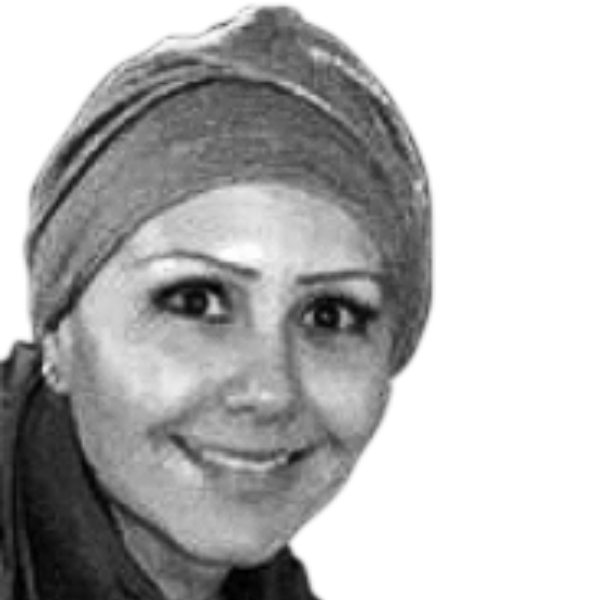
Lina Echeverri
Lina Echeverri
Doctor Lina Echeverri is a distinguished medical professional with a remarkable career, marked by proactive involvement in Complex Humanitarian Emergencies and outbreaks of infectious diseases, including Ebola, Yellow Fever, Meningitis, Cholera, and the ongoing COVID-19 pandemic. She holds a keen interest in mass population displacement and is internationally engaged in various renowned organizations such as Médecins Sans Frontières (MSF), UK-EMT, and Save the Children, among others. Currently, she serves as a consultant for Geneva Call, a prestigious Geneva-based NGO specializing in humanitarian engagement with armed non-state actors. She is also pursuing a PhD at CRIMEDIM.
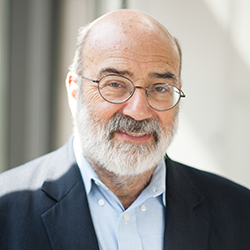
Ron Waldman
Ron Waldman
Ron Waldman, MD began his career as a volunteer in the World Health Organization’s Smallpox Eradication Program, serving for two years in rural Bangladesh. He joined the Epidemic Intelligence Service of the US Centers for Disease Control and Prevention in 1979. He also worked with the Ministry of Health in Somalia and, with colleagues, helped establish the epidemiology of refugee health. After two years as CDC’s regional epidemiologist based in Abidjan, Cote d’Ivoire, in 1985 he became Director of the Technical Support Division of CDC’s International Health Program Office and worked on both child survival projects and disaster response. From1992 through 1994 he was the Coordinator of the Cholera Control Task Force at the World Health Organization in Geneva.
From 1994-1999 he was assigned by CDC to be Technical Director of the USAID-funded BASICS program, a global child survival effort. During this time he also worked in emergency relief in the Balkans and Central Africa. In 1999 he became Professor of Clinical Population and Family Health and Professor of Clinical Epidemiology at Columbia University’s Mailman School of Public Health. In 2004-5 he was WHO’s coordinator during the tsunami emergency in Aceh, Indonesia. In 2007 he became Team Leader for Strategic Preparedness in the Pandemic Influenza and Other Emerging Pandemic Threats Unit of the US Agency for International Development. In 2010 he served as the US Government’s health sector coordinator in the Haiti earthquake relief effort and, later that year, as Senior Public Health Advisor to the UN Humanitarian Coordinator during the Pakistan floods disaster response.. He joined the faculty at GW in July 2012.
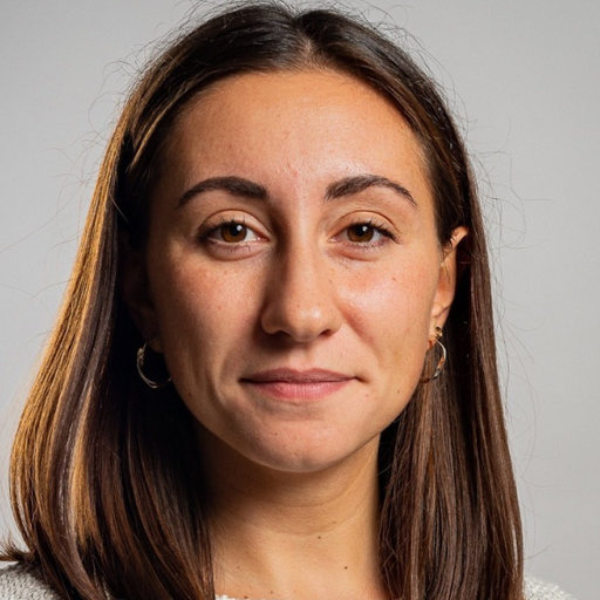
Martina Valente
Martina Valente
Professor Martina Valente specialized in Global Health and has earned her PhD at the Athena Institute, Vrije Universiteit Amsterdam. She’s a postdoctoral fellow at CRIMEDIM and conducts research in Global Health, Humanitarian Aid, and Disaster Medicine. She coordinates the activities of CRIMEDIM’s PhD program. In particular, she provides lectures on research methods to candidates, offers them ongoing support in their PhD projects, and contributes to innovative research directions at CRIMEDIM.
Laureates of the most important distinctions in the Life Sciences’ field, eminent researchers and remarkable doctors will give us a rare glimpse into the hard work behind some of the major discoveries of our time. Listen to their story of what it took to get there.
KEYNOTE LECTURES
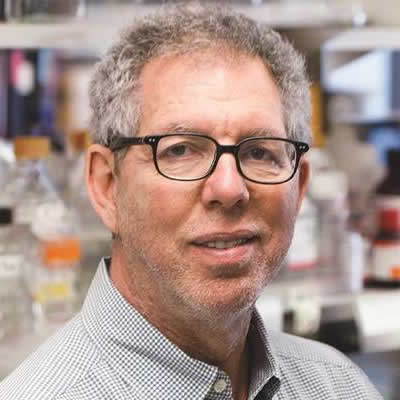
Jeffrey Friedman
Jeffrey Friedman
Professor Jeffrey Friedman is a renowned scientist and researcher in the field of obesity and endocrinology.
Professor Jeffrey Friedman obtained his Ph.D. in Molecular Genetics in 1986 and has been a faculty member there ever since.
In 1994, he made a groundbreaking discovery by identifying a hormone called leptin, which is produced by fat cells and plays a crucial role in regulating body weight. This landmark finding revolutionized our understanding of obesity and opened up new avenues for potential treatments.
Professor Friedman’s pioneering work has been widely recognized and acclaimed. He was elected to the National Academy of Sciences in 2001 and has received prestigious honors including the Shaw Prize for Life Sciences and Medicine in 2009, the Albert Lasker Basic Medical Research Award in 2010, the Wolf Prize in Medicine in 2019 and the Breakthrough Prize in Life Sciences in 2020.
Beyond his scientific achievements, Professor Jeffrey Friedman has also mentored and inspired numerous aspiring scientists in the field of obesity research. His contributions have had a profound impact on our understanding of obesity and have paved the way for further advancements in the field.
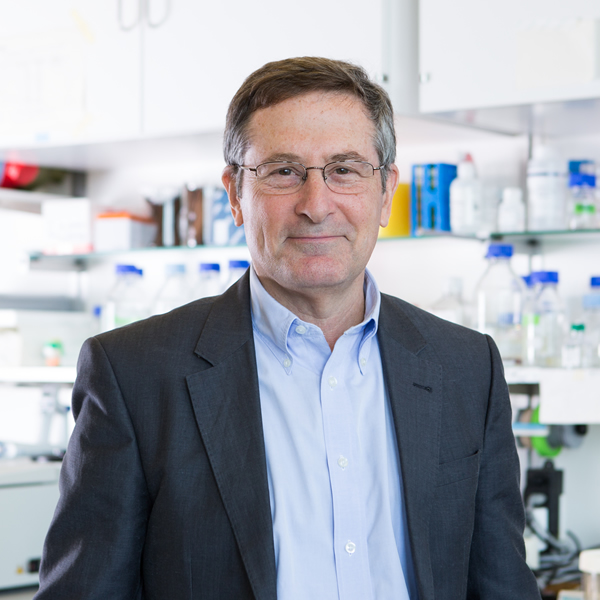
Michael N. Hall
Michael N. Hall
Michael N. Hall is an American-Swiss molecular biologist. He received his Ph.D. from Harvard University in 1981 and was a postdoctoral fellow at the Pasteur Institute (Paris, France) and the University of California, San Francisco. He joined the Biozentrum of the University of Basel (Switzerland) in 1987, where he is currently a Professor and former Chair of Biochemistry. Dr. Hall is a pioneer in the field of TOR signaling and cell growth control. In 1991, Dr. Hall and colleagues discovered TOR (Target of Rapamycin) and posteriorly elucidated its role – as a central controller of cell growth and metabolism. TOR plays a key role in development and aging and is implicated in various disorders including cancer, allograft rejection, and diabetes. Dr. Hall is a member of the US National Academy of Sciences and has received numerous awards, including the Louis-Jeantet Prize for Medicine (2009), the Breakthrough Prize in Life Sciences (2014), the Canada Gairdner Award for Biomedical Research (2015), and the Albert Lasker Award for Basic Medical Research (2017).
As we say in Portuguese, “The doctor who only knows about Medicine, doesn’t know it at all” (Professor Abel Salazar 1889 – 1946). The iMed Sessions are a set of lectures meant to connect the world of medicine and the world beyond it, thus fulfilling the main goal of the iMed Conference® – to INSPIRE.
iMed SESSIONS
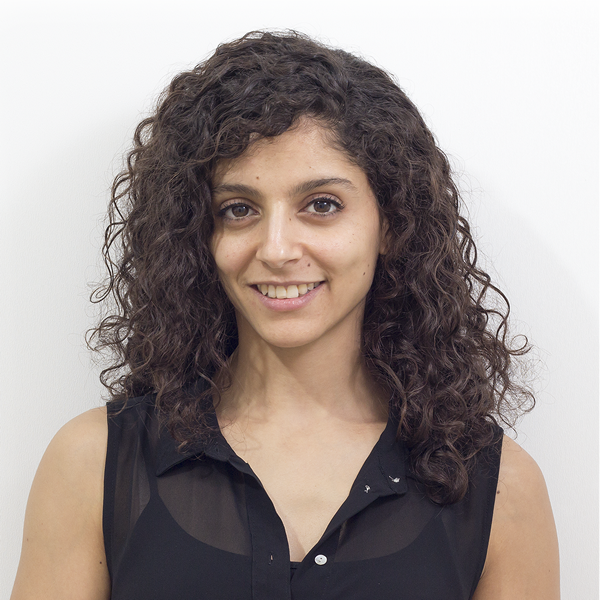
Alona Shagan Shomron
Alona Shagan Shomron
Alona Shagan Shomron is a postdoctoral researcher at the Robotic Materials Department at Max Planck Institute for Intelligent Systems. Alona studies are in the intersection between basic material science and soft robotics. Her research focus is understanding the material-based affecters of high-performance dielectrics for the fabrication of soft actuators, and developing biodegradable materials that fulfil the electrical and mechanical demands of these actuators. Another aspect of her research is dedicated to design and fabrication of soft artificial muscles for soft robotic applications, such as haptic feedback and assistive devices for tremor suppression. Prior to her studies in the soft robotic field, Alona completed her PhD, where her research focused on the development of smart biocompatible polymers for biomedical application, such as drug delivery systems and tissue adhesives.
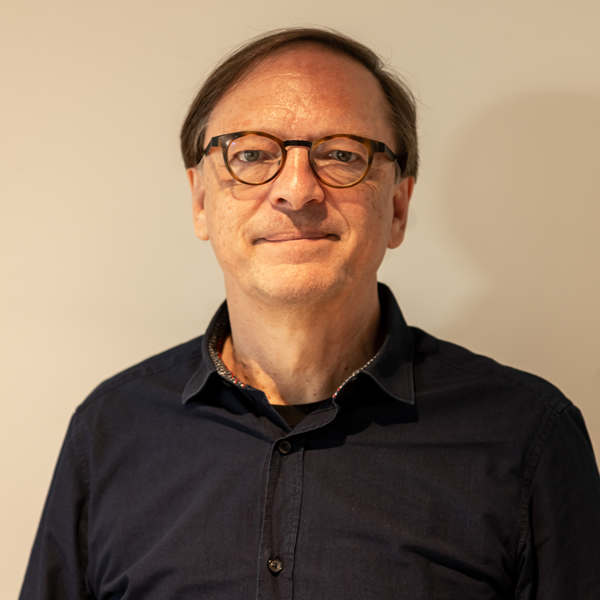
Luc Deliens
Luc Deliens
Luc Deliens, MA Sociology, PhD in Health Sciences, is Professor of Palliative Care Research at the Vrije Universiteit Brussel & Ghent University. He is the Founding Director of the multidisciplinary End-of-Life Care Research Group in Belgium (www.endoflifecare.be), with over 70 staff people, one of the largest research groups in Europe in the domain of palliative care and end-of-life studies, including a research program on assisted dying. Internationally, he is council member of Public Health Palliative Care International (PHPCI) and chairs the European Association for Palliative Care (EAPC) Reference Group on Public Health & Palliative Care and co-chairs the EAPC Research Network. He published over 550 papers in peer-reviewed journals and over 50 book chapters, and successfully supervised over 55 PhDs in palliative care or end-of-life decision-making. He is also elected member of the Royal Academy of Medicine of Belgium.
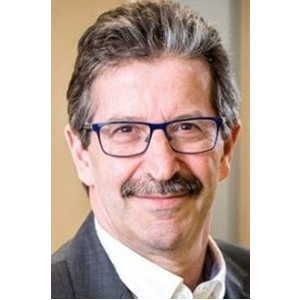
Mervyn Singer
Mervyn Singer
Professor Mervyn Singer is professor of Intensive Care Medicine at University College London. He specialized in sepsis, infection, shock, and haemodynamic monitoring. He developed the esophageal doppler monitor and co-created the UCL Ventura PAP for COVID-19 patients. His notable contributions comprise pivotal multi-center trials, authorship of the renowned Oxford Handbook of Critical Care, and leadership in heading the International Sepsis Forum. He co-chaired the Sepsis-3 Definitions Task Force, redefining sepsis in 2016, with a highly cited resulting paper. As the first UK intensivist to attain senior investigator status from the National Institute for Health Research, he’s also a sought-after plenary lecturer at global Intensive Care Congresses.
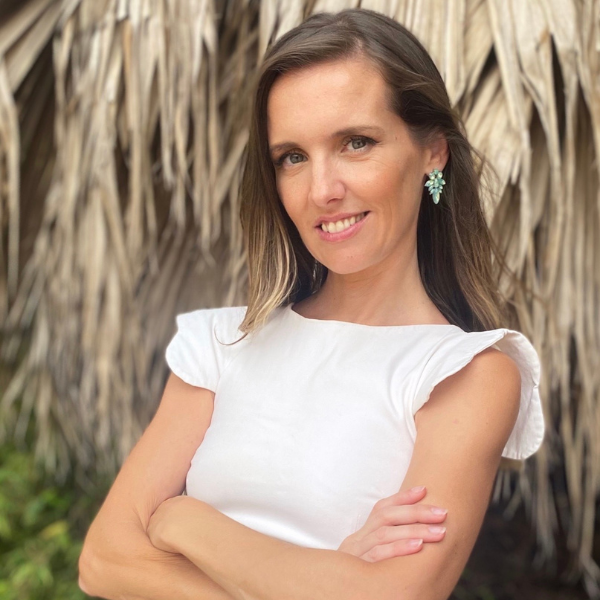
Marta Amorim
Marta Amorim
Professor Marta Amorim is a specialist in Medical Genetics and a Ph.D. candidate in Clinical Research and Translational Medicine. Currently, she is the Coordinator of the Medical Genetics Unit at the Dr. Nélio Mendonça Hospital in Funchal and the Coordinator of Medical Genetics in Lusíadas Hospital in Lisbon. Since 2023, she has been a Medical Genetics Consultant at the Germano de Sousa Group. She is also a member of the Health Technology Assessment Commission (CATS), belonging to Infarmed. She is an associate editor of the Portuguese Journal of Pediatrics and author and co-author of publications in indexed international scientific journals such as Nature Genetics and the American Journal of Medical Genetics.
For these lectures we choose speakers who have devoted their lives to humanitarian Medicine – our aim is to motivate students to be connected with the world beyond their hospitals and take action. In today’s global world, where problems have no borders anymore, what role will you play?
HUMANITARIAN LECTURES
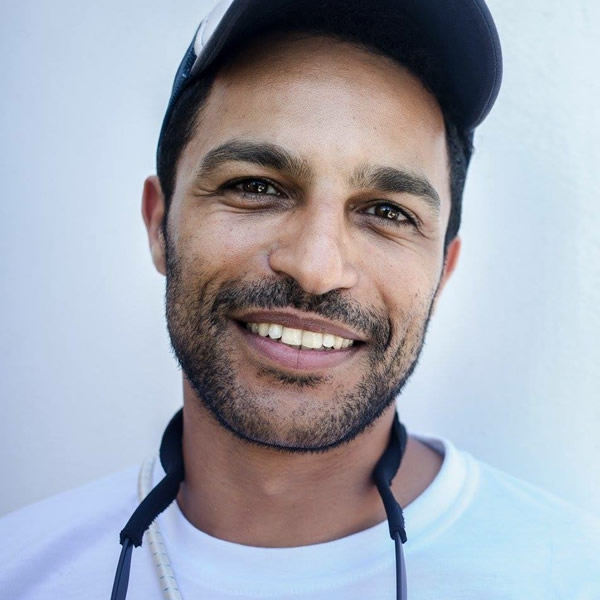
Javid Abdelmoneim
Javid Abdelmoneim
Javid Abdelmoneim is a doctor and TV documentary presenter. He was the subject of the BAFTA, Grierson & Emmy nominated Panorama “Ebola Frontline” special, which was broadcast in more than 20 countries. He is the winner of an FPA award for best science story for his episode “Operation Gaza” from the Al Jazeera English health magazine show “The Cure”. The series showcased innovations and advances in healthcare from around the world. He has presented several BBC and Channel 4 documentaries on science, social and humanitarian issues such as obesity, living as a refugee, alcohol, flu pandemics, weight loss, cannabis and gender stereotyping. This last documentary saw him BAFTA nominated in 2018.
In June 2021 Javid completed his term as President of MSF UK, after six years on the board of trustees. Since 2009, he has worked as a doctor for MSF in many emergency contexts including Iraq, Haiti, South Sudan, Sierra Leone for Ebola, Syria, Chad, Ukraine and Tigray.
Javid is now working with the World Health Organisation as a Case Management expert in Malawi, as the country endures the largest cholera epidemic in its history. He is also on the board of the UK Royal College of Emergency Medicine.
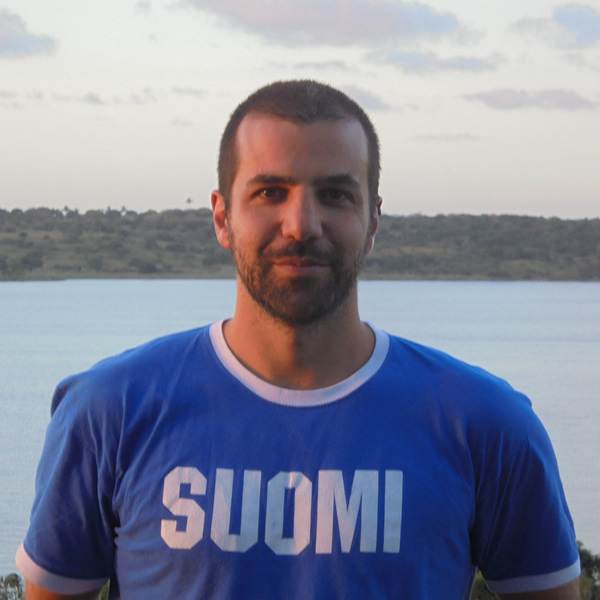
Gustavo Carona
Gustavo Carona
Gustavo Carona, 41-year-old Anesthesiologist and Intensivist from Porto, has been dedicated to humanitarian missions since 2009. He has represented Doctors Without Borders, the International Committee of the Red Cross, and Doctors of the World in areas of extreme humanitarian need, including Mozambique, Democratic Republic of Congo (x2), Pakistan, Afghanistan, Syria, Central African Republic (x2), Iraq, Burundi, Yemen, Gaza, and South Sudan.
From an early age, he has tried to give voice to the lives that have passed through his hands, appealing to global humanity through his writing and numerous interventions throughout the country, giving the Portuguese a glimpse of a world that almost no one wants to see. He is the author of the book “1001 Letters to Mosul," in which he compiled hundreds of letters from Portuguese people that were delivered to the epicenter of one of the greatest collective sufferings in memory. He delivered over 500 books to Mosul, opening a channel of communication that was once deemed impossible.
In 2018, he published the humanitarian book “The World Needs to Know" with a preface by Jorge Sampaio. In 2021, he published “Diary of a Doctor in the Pandemic."
He was honored by the University of Porto as its alumni of the year in 2015 and with the International Volunteering Award. He is part of the group for the reflection on the future of Portugal led by the President of the Republic. He is the patron of the student associations of medicine: Porta Nova (U. Minho) and Entre Mundos (U. Beira Interior). He is a trainer in the Post-Graduation Program of Human Rights at the Catholic University and a speaker at various events, particularly at universities on humanitarian medicine.
He was chosen as the European Young Leader of 2022 by the European Union. He is a columnist in the newspaper “Público" and a science communicator on SIC Notícias during the COVID-19 pandemic. He is a trainer of internal doctors in Intensive Medicine in Angola and the founder of the Heart and the World Awards.
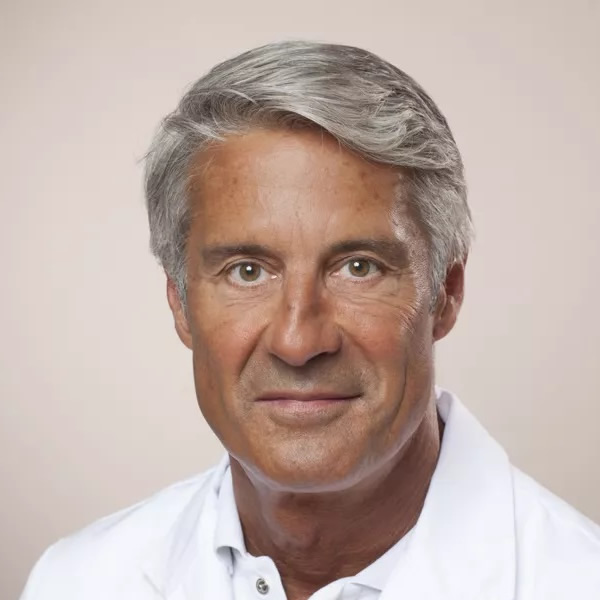
Enrique Steiger
Enrique Steiger
Enrique Steiger is an expert in plastic and reconstructive surgery and traumatology from Switzerland. He is renowned for his expertise in humanitarian medicine and is the founder of the Swisscross Foundation, an organization aimed at improving access to medical treatment and safety for victims of war.
Dr. Steiger obtained his doctorate from the University of Zurich. Seeking to expand his knowledge and expertise, he underwent specialist training programs in Los Angeles and Rio de Janeiro. Since 1989, he has undertaken numerous missions in conflict zones as a physician and delegate for organizations such as ICRC, UN, and OSCE in several countries, including Rwanda, Burundi, Angola, Namibia, Western Sahara, Bosnia, Kosovo, Liberia, Sierra Leone, Chad, Sudan, Pakistan, Afghanistan, and Syria.
In 1997, Dr. Steiger became the clinic director and owner of Clinic Utoquai in Zurich, a leading center for plastic and cosmetic surgery and medicine. The clinic offers a wide range of treatments and also provides pro bono assistance in war zones. Under the guidance of the Swisscross Foundation, founded by Dr. Enrique Steiger and established by Clinic Utoquai in 2017, it treats patients with complex injuries and ensures access to medical care during crises. Collaborating with the ICRC, the Swisscross Foundation operates a reconstructive surgery center in Tripoli, Lebanon.
Dr. Enrique Steiger is also a university lecturer for conflict research at the Institute of Political Science at the University of Zurich. He has authored numerous articles on humanitarian medicine and conflict research.
As an accomplished author and speaker, Dr. Steiger continues to share his knowledge and experiences at conferences and events worldwide, advocating for better access to medical care and the safety of relief workers in the most challenging environments.






